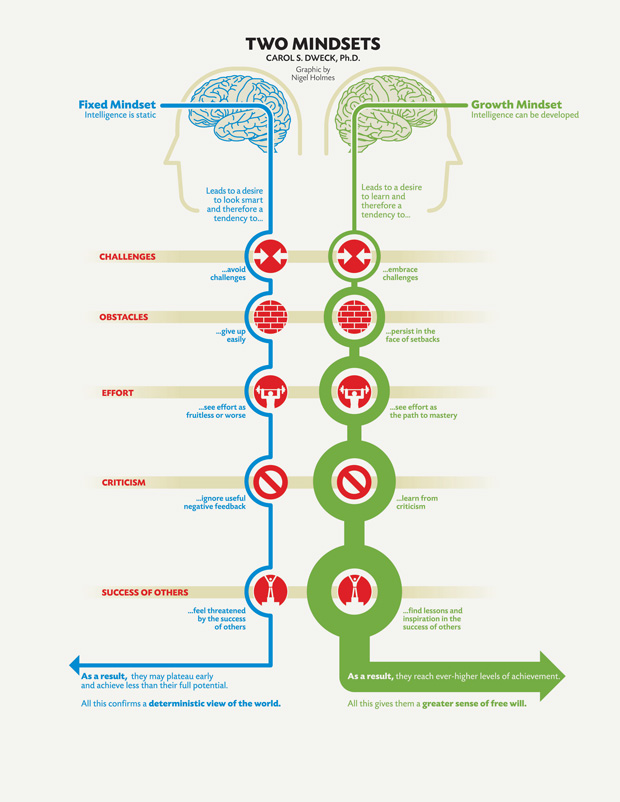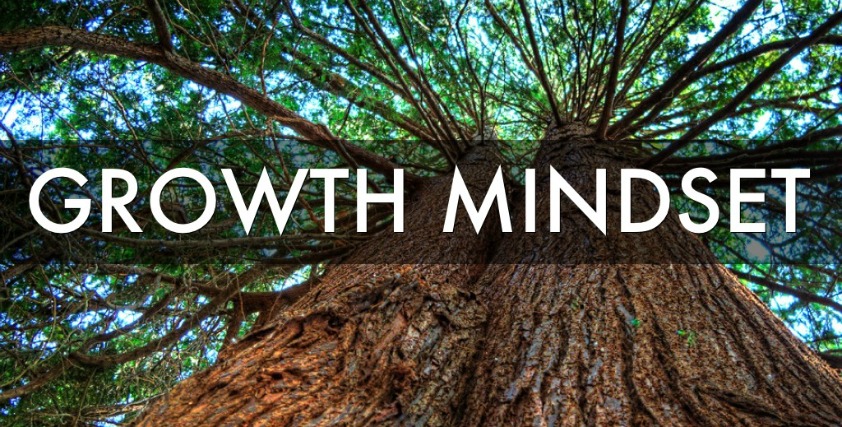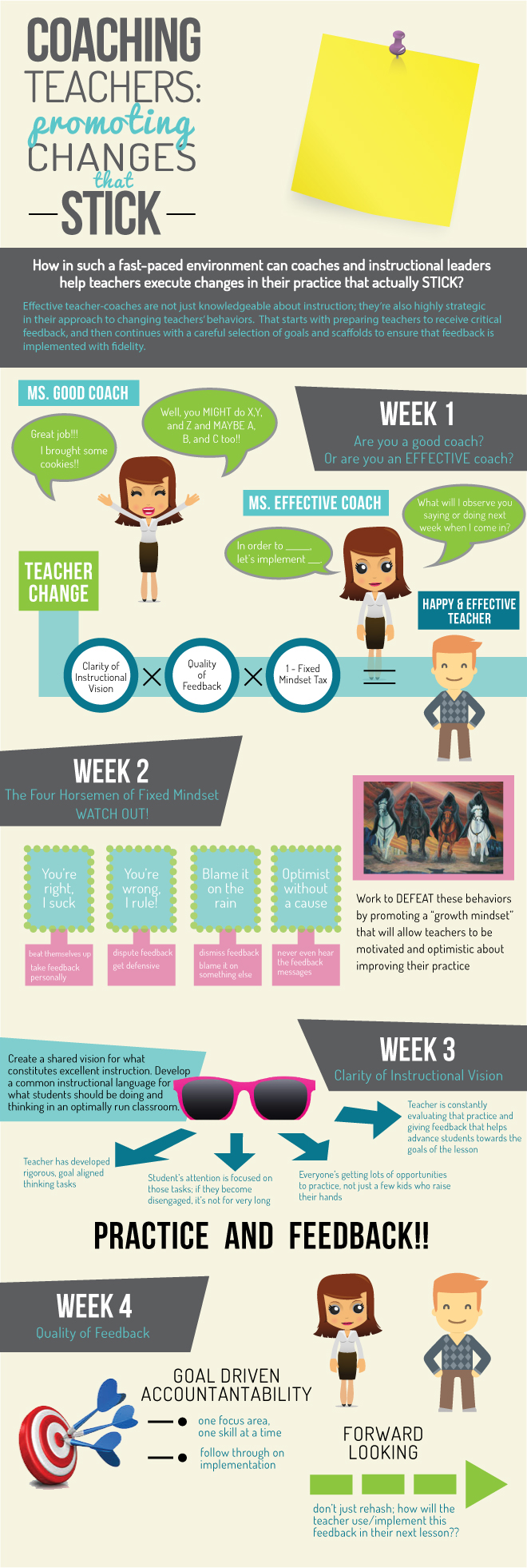“Am I a good coach or am I an effective coach?” One area Kristin Houser going to work on is the quality of my feedback. In this infographic she identifies 4 ways to focus on improving your coaching game in 4 weeks’ time. What area do you struggle with or would like to improve in your own coaching practice? These ideas can help.
mindset
10 Ways to Foster An Entrepreneurial Mindset
Reposted from Getting Smart:
 The Getting Smart team has spent the last quarter thinking about building an entrepreneurial mindset and what that looks like in schools. We’ve had a chance to talk to deans of nursing schools, K-12 leaders and education start-ups about the skill set needed and what great entrepreneurs have in common. Below is a quick list of 10 ways to foster an entrepreneurial mindset both individually and as an organization.
The Getting Smart team has spent the last quarter thinking about building an entrepreneurial mindset and what that looks like in schools. We’ve had a chance to talk to deans of nursing schools, K-12 leaders and education start-ups about the skill set needed and what great entrepreneurs have in common. Below is a quick list of 10 ways to foster an entrepreneurial mindset both individually and as an organization.
Leadership: Delighting in the Possible

Reposted from McKinsey Insights & Publications:
We relish stories of unexpected possibilities—little bets that created huge and unforeseen benefits. Twitter, for instance, was born when its creators noticed how alive and engaged they felt when communicating with each other in real time over SMS. The concept was brilliant, and the platform has reshaped the way the world communicates. But the initiative arose from brainstorming rather than an elaborate business plan. Tweeting caught on, in large part, because it grants its users freedom. In fact, Twitter cofounder Evan Williams has explained that, in general, his rule is to do less. We can’t foresee how uncertain conditions will unfold or how complex systems will evolve, but we can conduct thoughtful experiments to explore the possibilities.
This way of approaching situations involves a whole suite of routines grounded in a mind-set of clarity if not outright certainty. To that end, they are characterized by sharp-edged questions intended to narrow our focus: What is the expected return on this investment? What is the three-year plan for this venture? At what cost are they willing to settle? But asking these kinds of questions, very often legitimate in business-as-usual settings, may constrain management teams in atypical, complex situations, such as responding to a quickly changing market or revitalizing a privatized utility’s culture. Our tendency to place one perspective above all others—the proverbial “fact-based view” or “maximizing key stakeholders’ alignment”—can be dangerous. All too often, we operate with an excessively simple model in enormously messy circumstances. We fail to perceive how different pieces of reality interact and how to foster better outcomes.
Moving from “managing the probable” to “leading the possible” requires us to address challenges in a fundamentally different way. Rather than simply disaggregating complexities into pieces we find more tractable, we should also broaden our range of interventions by breaking out of familiar patterns and using a whole new approach that allows us to expand our options, experiment in low-risk ways, and realize potentially outsized payoffs. But be warned: leading the possible involves coping with our own anxieties about an unknowable and uncontrollable world. A few simple habits of mind presented here can prod us toward thinking and acting differently. These should not be considered a checklist of to-dos; indeed, the very point is to move beyond a check-the-box mentality.
Mindsets And The Power of Believing [INFOGRAPHIC]
 Dweck’s work shows the power of our most basic beliefs. Whether conscious or subconscious, they strongly “affect what we want and whether we succeed in getting it.” Much of what we think we understand of our personality comes from our “mindset.” This both propels us and prevents us from fulfilling our potential. Changing our beliefs can have a powerful impact. The growth mindset creates a powerful passion for learning. “Why waste time proving over and over how great you are,” Dweck writes, “when you could be getting better?”
Dweck’s work shows the power of our most basic beliefs. Whether conscious or subconscious, they strongly “affect what we want and whether we succeed in getting it.” Much of what we think we understand of our personality comes from our “mindset.” This both propels us and prevents us from fulfilling our potential. Changing our beliefs can have a powerful impact. The growth mindset creates a powerful passion for learning. “Why waste time proving over and over how great you are,” Dweck writes, “when you could be getting better?”
March Mindset

If I asked you who your current role models and mentors are, would you have names on the tip of your tongue? I know we spend a lot of time modeling and mentoring for others. But how about others who serve that role for you?
Sure there are people you look up to, because of their position or their influence…those connectors who may help you advance professionally. And there are those you don’t think of as models or mentors, but make you take notice from time to time as they speak or take action. That’s all good, but that’s not what I’m asking.
I’m talking about intentional selection of people who can help you to grow and fulfill your full vocation as an educator…not just improve your professional status.
Vocation? Yes, vocation…not just a job or a career. A vocation: the important life’s work you are meant to do. If that concept doesn’t resonate with you, then stop reading now and save yourself the next three minutes of your life you’ll never get back…

Still reading? Good. We give and do and make a difference because that’s how educators are wired. We find our satisfaction knowing that the work we do gets paid forward many times over. But what about giving and doing and making a difference within ourselves?
I’m talking about you, the educator, and how you feed your mind and your heart and your spirit. To not mindfully do so is to slowly starve yourself…personally and professionally.
After twenty-five years in public education, from teacher to assistant superintendent, I came to ASCD to find new ways to serve. By the end of my first month, July 2010, I realized I was learning and being challenged to grow in ways that I had not been in a very long time. It was a stunning epiphany. I thought I was learning and growing all those years, and on some basic functional levels, I was. But all those readings and meetings and conversations were more about the work than about me. I had been unintentionally denying myself the sustenance I craved and needed.
Looking back, I realize the shift was in my own thinking and perception. Instead of taking it for granted that I was running on all cylinders, full throttle, getting lots done, I began asking questions and looking for people who modeled the attitudes, values and actions that could lead me to answers. For the first time, I was intentionally choosing to make my own fulfillment a priority.

To be clear, this is not the traditional mentoring model we are all so familiar with: entering into an agreement with someone to regularly discuss challenges and opportunities around a role or job function. This is different. It’s a mindset…a way of growing and sustaining my self. And the most striking thing about it is, the more I mindfully I practice this mindset, the more the right people and ideas start to “find” me…creating a positive flow of energy that sustains me.
I’ll be 55 this October, so the case can certainly be made that after enough experience, I came to this conclusion…life has a way of teaching us in spite of our selves. I write this in the hopes that you don’t have to put in a good thirty years before you figure it out, too. Life’s too short, and it’s so much better when it’s fulfilling.
You don’t have to let people know they are a model for you. Just make the choice. Intentionally internalize what you can learn from them. Feed your heart and your mind and your spirit. And as you come to experience the nurturing and sustenance welling up inside you, you may eventually choose to let them know and thank them for the difference they have made. Because you can’t keep modeling and mentoring others,…giving and doing what needs to be done on their behalf…and not give and do for yourself. It’s the surest way to short-circuit your life’s work.
 Consider it your very own personalized professional development; the kind of growth that no one else can possibly prescribe for you the way you can. As we embark on this month of March, nevermind the madness…focus on a new mindset that will pay you returns well beyond the next thirty-one days. Make this March your month to begin intentionally selecting the mentors and models that well get you where you want and need to be to fulfill your vocation…both personally and professionally.
Consider it your very own personalized professional development; the kind of growth that no one else can possibly prescribe for you the way you can. As we embark on this month of March, nevermind the madness…focus on a new mindset that will pay you returns well beyond the next thirty-one days. Make this March your month to begin intentionally selecting the mentors and models that well get you where you want and need to be to fulfill your vocation…both personally and professionally.
Tenkely: To Change Education, Change Your Mindset

Reposted from Dreams of Education:
The problem with education reform is that we keep attempting to change surface level systems and hoping for deep systemic change as a result. What we actually end up with is new standards, new curricula (usually replacing one one-size-fits-all with another one-size-fits-all), new technology initiatives, more professional development, added “rigorous” expectations, new standardized tests, new assessment systems, and new buzz words. If you’ve been involved in education for any amount of time, you begin to see a pattern emerge. As a society, we seem to be always searching for the next best thing that is going to “fix” education; it quickly begins to feel like a broken record.
I’ve often heard education veterans lament about how this is, “just one more new program.” It will get hyped, change the way everything is done, but the end result will be the same: countless professional development dollars will have been spent, there will be additional pressure and stress to get everything changed over to the “new” way of doing things, and lives and schools will be turned upside down and inside out. In the end the “new” push will end up with all the others: shoveled to the side when the next latest and greatest idea comes on the horizon. This has been the case for as long as I’ve been in education (30-year+ veterans tell me that it is nothing new). When this is the education landscape, you really can’t help but to feel jaded and wonder what the point of all of it is.
The trouble is, in all of these initiatives we never really change our minds about what education is and what it needs. We continue thinking about and approaching education in exactly the same ways, put a new cover on it, and act as if it will finally be THE thing that changes everything. If we keep looking at education with the same assumptions, no matter what comes our way, the end result will be the same. Swirl. The circling around solutions that aren’t really solutions. We have to change our minds. We have to identify the assumptions that we make about education and divorce ourselves from them enough to gain a new perspective.
8 Strategies That Nurture the Innovator Mindset

Reposted from Edutopia:
One thing that we always come up against, and I’m guessing it will sound familiar, is that students are often reluctant to engage in creative work because they fear making mistakes and are overwhelmed by open-ended design challenges. They can also be quick to give up when they experience a setback.
Dozens of practices and rituals come together to make our culture of creativity and innovation real for students. We find that, after just a few weeks in this setting, students are willing to imagine new possibilities, take risks, build off each other’s ideas, and keep going until they reach their goals.
The first step is to place the five elements of the mindset (or your own version) prominently on your classroom wall. Simply naming these attributes and teaching your students what they mean will emphasize that your goal is bigger than imparting knowledge. You’re making a statement that you see your students as people who have the power to chart their own course, rather than being victims of circumstance. Then, make it real by adopting practices and rituals that reinforce the Innovator’s Mindset…
Deeper Learning: The Academic Growth Mindset

Reposted from Education to Save the World:
An April 2013 article by Camille A. Farrington explains that “[a]cademic mindsets are …both motivators for and outcomes of engagement in deeper learning experiences.” You need academic mindset to be successful in deeper learning and conversely deeper learning experiences help students develop academic mindsets. Based on a wide-body of research, Farrington introduces four academic mindsets.
These mindsets matter. They help students engage in the complex work of deeper learning and are developed by that same learning. What’s more they are highly correlated with adult success. The great news about this news is that each of these minds is 1) malleable and 2) influenced by students’ school experience.
Farrington contends, “Students’ academic identities and attitudes and beliefs about schooling are strongly influenced by the school and classroom environment in which learning is situated; the structure of academic work, goals, support, and feedback in that environment; and the implicit and explicit messages conveyed to students about themselves in relation to that academic work.”
Educators and the Growth Mindset [INFOGRAPHIC]
An Infographic, Thinglink, and Slide Presentation created by Jackie Gerstein and originally posted on her User Generated Education blog.

